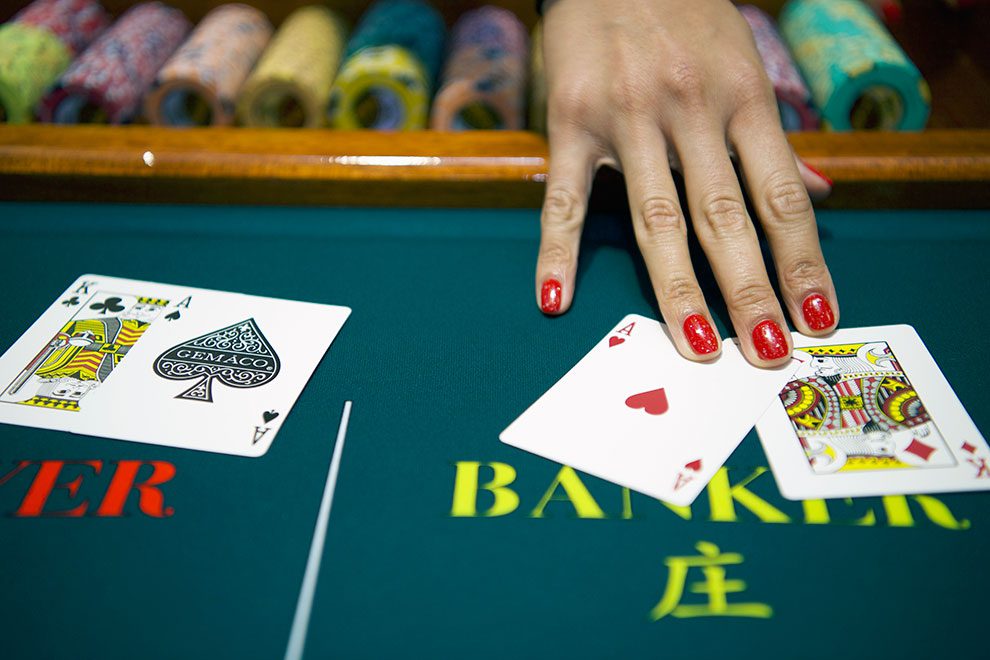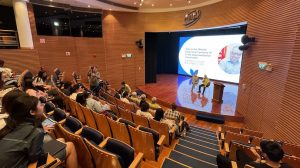The legalisation of casino gambling in Mainland China is often considered by pundits as a move that would severely hurt Macao’s interests, as gaming is the city’s largest industry. A study involving a scholar from IFT argues differently: it suggests it would help reduce “a mass exodus of capital” from the Mainland China economy to casinos abroad.
Macao is not able to meet the “enormous demand for gambling” from Mainland Chinese, wrote Dr. Li Sheng, currently a scholar at the University of Macau, and IFT scholar Dr. Zhao Weibing in their paper. “Such economic inefficiency, however, will be mitigated if the Chinese Government allows Mainland local gaming services to grow and compete with Macao casinos,” the authors noted.
“The Chinese demand for gambling is sufficiently large to allow a number of casino resorts to coexist in a harmonious and profitable manner,” Dr. Li and Dr. Zhao stated.
For Macao’s casino industry to remain competitive under a scenario of casino legalisation in Mainland China, “the [Macao] Government and private sector should make every effort to upgrade the casino facilities and overall level of tourism service,” the scholars suggested. “In the long term, Macao must widen its clientele base and diversify its economy,” they added. “Diversification is most likely to be the best and only precautionary strategy that Macao can adopt to safeguard its economic sustainability.”
Their paper, “Strategic Destination Management in the Face of Foreign Competition: The Case of Macao SAR”, was published in the Journal of Travel and Tourism Marketing in 2016.
The 2 scholars noted that “it is not possible for Macao to capture all gambling revenue from Mainland China, but Macao can continue to maintain its gaming-led tourism advantage if it promotes itself as a world-class high-roller destination.” They added that gaming facilities in both Mainland China and Macao could prosper “if market underutilisation can be reduced by keeping Chinese customers from gambling in overseas establishments.”
Macao is by far the largest single-jurisdiction market for casino gambling in the world, according to several investment analysts. Casino gross gaming revenue in Macao for the first 10 months of 2017 stood at nearly MOP220 billion, up 19.2 percent from the prior-year period, according to official data. The majority of the city’s gaming revenue comes from the VIP segment, and most high-rollers in the city’s casinos hail from Mainland China, according to Dr. Li and Dr. Zhao.
Protecting national interest
The 2 scholars said legalising casino gambling in Mainland China “would be strategically helpful in protecting China’s national economic interests”. As demand for gambling services “is soaring” in the Mainland, the “absence of formal gaming establishments have led to the problem of undersupply”, they noted. Dr. Li and Dr. Zhao added that a significant part of the unsatisfied demand has been exploited by foreign casinos, “resulting in loss of national wealth”.
They stated: “The mushrooming of casinos in the Asia-Pacific region, particularly near the Chinese border, is making the situation… worse… If the Chinese Government does not take… action, the capital-exodus problem driven by overseas gambling will become a real threat” to the national well-being.
Several of China’s neighbouring nations have legalised casino business; however, many prohibit or limit locals from gambling domestically. Such countries include the Republic of Korea, Laos and Vietnam, where casinos focused on serving Chinese nationals are commonly found.
Dr. Li and Dr. Zhao suggested that the Mainland China authorities should not legalise casinos fully across Mainland territory. “Launching pilot projects in certain special zones would be a more feasible option,” they said. The 2 scholars mentioned Hainan Island – being promoted by the Chinese Central Government as an international tourism destination – as providing “a precious opportunity for experimenting with commercial gaming.”
They also suggested that were any Mainland Chinese casino zones to be allowed and were to adopt Macao-style business models it would be “disastrous” for the latter. Dr. Li and Dr. Zhao suggested that it was “critical for Macao to avoid direct competition” with any such Mainland zones. The desired outcome, the scholars suggested, would be for Macao to focus on the higher end of the market, with Mainland China casinos serving the lower end.
Dr. Li and Dr. Zhao added that Macao’s 6 casino operators could benefit from the legalisation of gambling in Mainland China. They should use their privileged position to become familiar with market conditions and the investment environment in Mainland China “so that, once the door for foreign direct investment is opened, they can seize the opportunity ahead of competitors”. Until then, the 2 scholars suggested, these firms could invest in non-casino hotels and resorts in Mainland China. “This type of business is completely legitimate and also has a relatively high rate of return in Mainland China,” they stated.
MGM Resorts International – the parent of Macao-based casino operator MGM China Holdings Ltd – has a partnership with China’s Diaoyutai State Guesthouse for the operation of hotel properties in Mainland China. Another Macao casino operator – Galaxy Entertainment Group Ltd – has announced plans for the development of a non-gaming resort on Hengqin Island, adjacent to Macao.
More info
IFT Assistant Professor Dr. Zhao Weibing – also known as Dr. Max Zhao – earned a Ph.D. in Management from the University of Calgary, in Canada. He joined IFT in 2008. His research interests include destination marketing and management, traveller behaviour and experience, entrepreneurship, and studies related with the Guangdong-Hong Kong-Macao Greater Bay Area. Dr. Zhao has had works published in several high-profile academic journals.
http://dx.doi.org/10.1080/10548408.2015.1051198









